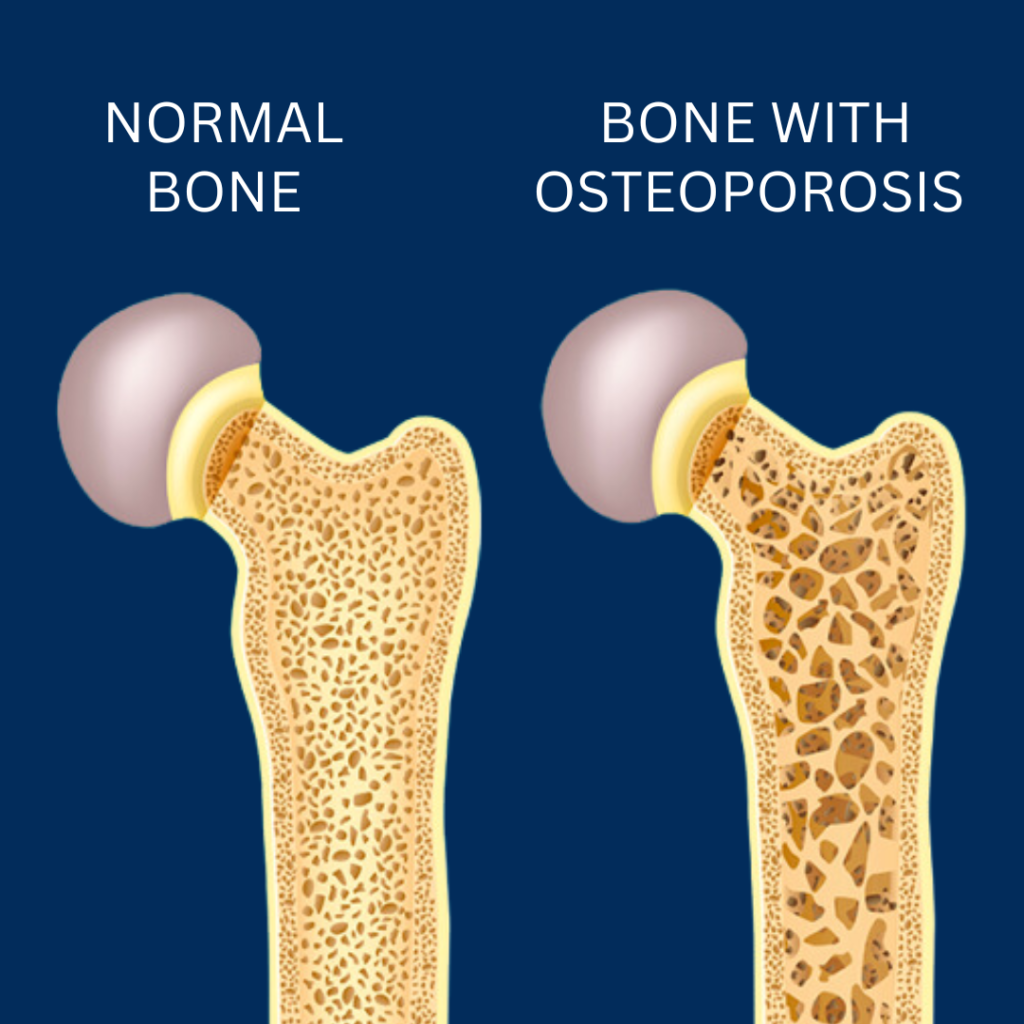Dealing with osteoporosis, a condition characterized by weakened and fragile bones can have an impact on your quality of life. However, there is hope. Alongside treatment, incorporating lifestyle changes can play a crucial role in managing the condition and promoting stronger bones. In this article, we will explore strategies to enhance bone strength and improve bone density for better bone health.
How to Strengthen Bones when Dealing with Osteoporosis?
To strengthen bones while managing osteoporosis, it is important to take an approach that includes nutrition, exercise, and adjustments to your routine. Before making changes consulting with a healthcare professional is essential. However, the following strategies can contribute to bone health;
-
- Engage in Weight Bearing Exercises: Activities like walking, jogging, dancing, or stair climbing can promote bone growth by exerting stress on the bones over time. This prompts them to become denser and stronger.
-
- Incorporate Resistance Training: Including resistance exercises using weights, resistance bands, or utilizing your body weight can help increase muscle strength and enhance bone density. This is especially beneficial for the spine, hips, and wrists.
By adopting these lifestyle changes alongside treatment, under professional guidance you can effectively manage osteoporosis while promoting stronger bones.

A balanced diet plays a role, in maintaining healthy bones. It is important to include foods that are rich in calcium and vitamin D as they support bone structure and aid in calcium absorption. You can incorporate dairy products, leafy greens, fortified foods, and fatty fish into your meals.
Protein intake is also essential for bone and muscle health. Opting for sources of protein like poultry, fish, beans and legumes can help with bone repair and maintenance.
To promote stronger bones it is advisable to quit smoking and limit alcohol consumption. Both smoking and excessive alcohol intake can weaken bones so reducing these habits can lower the risk of bone loss.
Preventing falls is another aspect of maintaining bones when dealing with osteoporosis. Keeping your living space free from hazards and considering balance-enhancing exercises such as ‘Tai Chi’ can greatly reduce the chances of fractures.
When it comes to developing a lifestyle that supports healthier bones, it is not just about exercise and diet alone. It involves an approach that promotes overall well-being. One important aspect is maintaining weight because excess body weight puts strain on the bones increasing the risk of fractures. Achieving and sustaining a weight through a diet and regular exercise will help alleviate this strain.
Make sure to stay properly hydrated as it plays a role, in bodily functions including maintaining healthy bones. Water helps transport nutrients to cells aiding in the repair and upkeep of your bones.

It’s important to prioritize getting calcium and vitamin D for bone health. If your healthcare provider recommends it consider taking supplements to ensure you’re meeting your needs.
To promote bone health it’s crucial to manage and reduce stress levels. Engaging in activities like meditation, yoga or deep breathing exercises can be beneficial in reducing stress.
Getting quality sleep is essential, for health including the regeneration and repair of your bones. Aim for 7-9 hours of sleep each night to support bone health.
There are lifestyle factors that positively impact bone density and lower the risk of fractures or complications related to osteoporosis. Incorporating these habits into your routine can significantly contribute to bones;
Regular exercise: Engage in a variety of physical activities that not only strengthen muscles but also stimulate bone growth. Include weight-bearing exercises, resistance training, and flexibility-enhancing activities.
Balanced diet: Make sure to consume a range of rich foods that provide essential vitamins and minerals for maintaining strong bones. This includes incorporating dairy products, leafy greens, nuts, and seeds into your diet.
Cutting back on caffeine is also important because consuming much can cause calcium to be lost from your bones. It’s best to moderate your intake of caffeinated drinks and processed foods that are high, in sodium.
When it comes to alcohol it’s wise to drink in moderation as consumption can interfere with calcium absorption and weaken your bones. Taking steps to limit alcohol intake will help promote bone health.
Another crucial step, for maintaining bones is avoiding smoking. Smoking hampers the body’s ability to absorb calcium, which ultimately leads to bone density. By quitting smoking you’ll positively impact the health of your bones.

